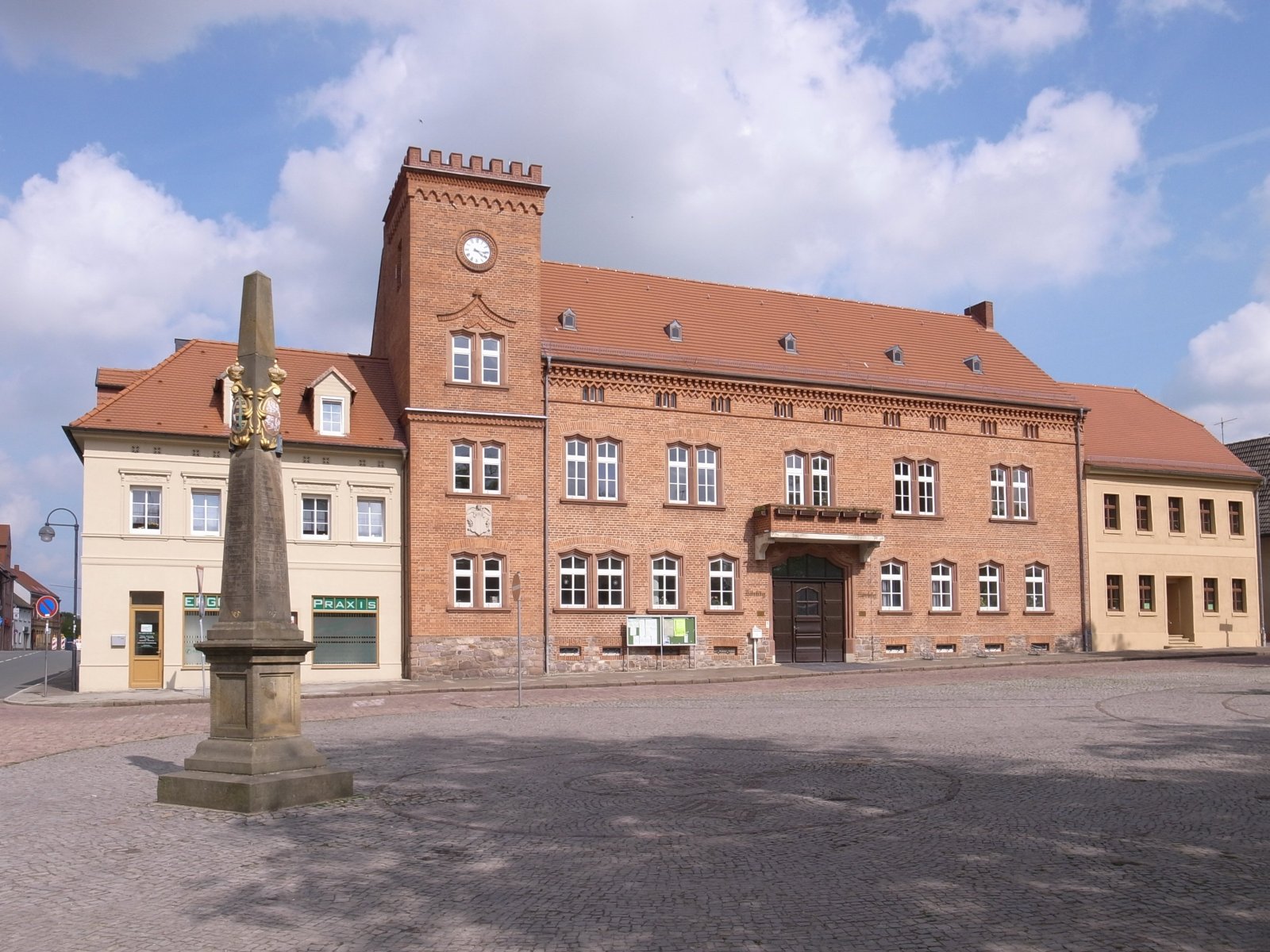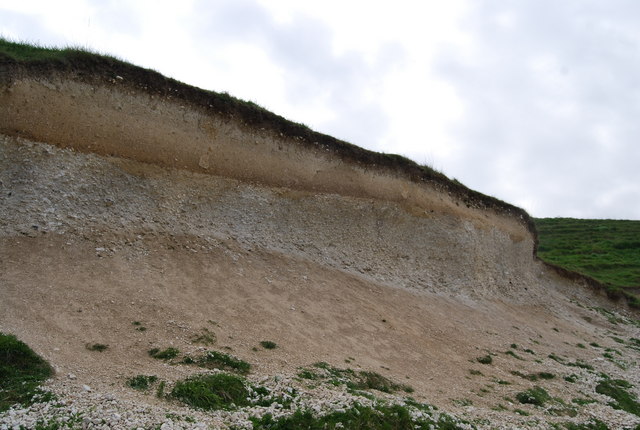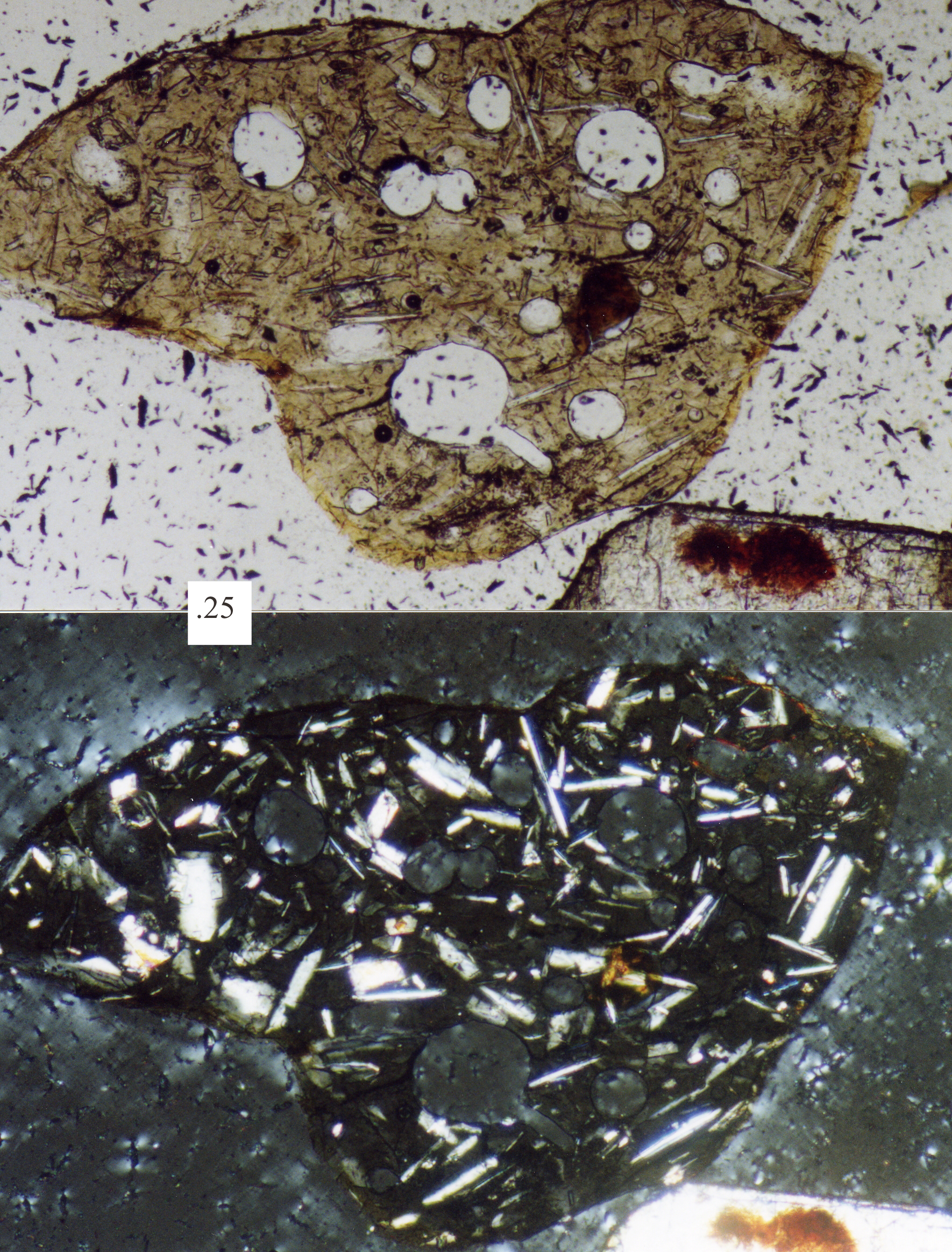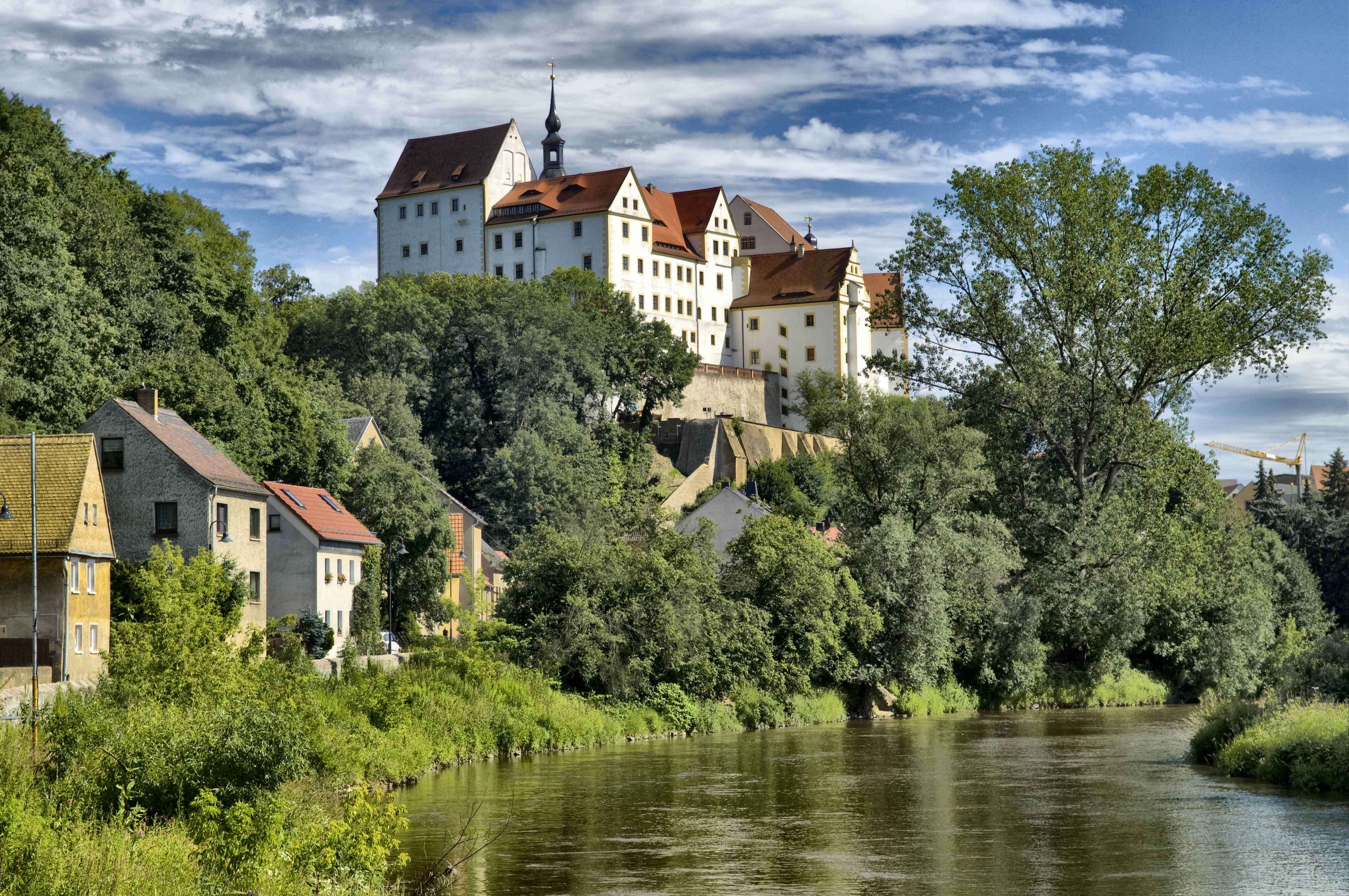|
Friedrich Albert Fallou
Friedrich Albert Fallou (1794–1877) was the German founder of modern soil science. While working as a lawyer and tax assessor, Fallou established himself as an independent scientist, a recognized authority in the natural history of farm and forest soil. In 1862 he advanced the idea that soil was separate in nature from geology. Intent on establishing the study of soils as an independent science, Fallou introduced the term pedology (german: pedologie). Life Friedrich Albert Fallou came from an aristocratic French Huguenot family. He was the son of a judicial bailiff, and spent his childhood in Rochlitz and Grimma, where he was a student at the Gymnasium St. Augustine. He never married. From 1814 to 1817 Fallou studied jurisprudence at the University of Leipzig. From 1818 to 1824 he worked as a lawyer in Colditz. In 1825 he was appointed town clerk of Waldheim and worked as administrative officer at the City Court, and as a land value tax assessor. His love of nature turned his ... [...More Info...] [...Related Items...] OR: [Wikipedia] [Google] [Baidu] |
Zörbig
Zörbig () is a town in the district of Anhalt-Bitterfeld in Saxony-Anhalt, Germany. It is situated approximately 15 km west of Bitterfeld, and 20 km northeast of Halle (Saale). Zörbig is well known for its molasses made from sugar beets. Geography The town Zörbig consists of the following ''Ortschaften'' or municipal divisions:Hauptsatzung der Stadt Zörbig § 15, 17 June 2021. *Cösitz *Göttnitz *Großzöberitz *Löberitz *Quetzdölsdorf *Salzfurtkapelle * Schortewitz *Schrenz *Spören *Stumsdorf *Zörbig People * |
Pedology
Pedology (from Greek: πέδον, ''pedon'', "soil"; and λόγος, ''logos'', "study") is a discipline within soil science which focuses on understanding and characterizing soil formation, evolution, and the theoretical frameworks for modeling soil bodies, often in the context of the natural environment. Pedology is often seen as one of two main branches of soil inquiry, the other being edaphology which is traditionally more agronomically oriented and focuses on how soil properties influence plant communities (natural or cultivated). In studying the fundamental phenomenology of soils, e.g. soil formation (aka pedogenesis), pedologists pay particular attention to observing soil morphology and the geographic distributions of soils, and the placement of soil bodies into larger temporal and spatial contexts. In so doing, pedologists develop systems of soil classification, soil maps, and theories for characterizing temporal and spatial interrelations among soils . There are a few note ... [...More Info...] [...Related Items...] OR: [Wikipedia] [Google] [Baidu] |
Petrographic
Petrography is a branch of petrology that focuses on detailed descriptions of rocks. Someone who studies petrography is called a petrographer. The mineral content and the textural relationships within the rock are described in detail. The classification of rocks is based on the information acquired during the petrographic analysis. Petrographic descriptions start with the field notes at the outcrop and include macroscopic description of hand specimens. The most important petrographer's tool is the petrographic microscope. The detailed analysis of minerals by optical mineralogy in thin section and the micro-texture and structure are critical to understanding the origin of the rock. Electron microprobe or atom probe tomography analysis of individual grains as well as whole rock chemical analysis by atomic absorption, X-ray fluorescence, and laser-induced breakdown spectroscopy are used in a modern petrographic lab. Individual mineral grains from a rock sample may also be analyz ... [...More Info...] [...Related Items...] OR: [Wikipedia] [Google] [Baidu] |
Soil Quality
Soil quality refers to the condition of soil based on its capacity to perform ecosystem services that meet the needs of human and non-human life.Tóth, G., Stolbovoy, V. and Montanarella, 2007. Soil Quality and Sustainability Evaluation - An integrated approach to support soil-related policies of the European Union", EUR 22721 EN. 40 pp. Office for Official Publications of the European Communities, Luxembourg. . Soil quality reflects how well a soil performs the functions of maintaining biodiversity and productivity, partitioning water and solute flow, filtering and buffering, nutrient cycling, and providing support for plants and other structures. Soil management has a major impact on soil quality. Soil quality relates to soil functions. Unlike water or air, for which established standards have been set, soil quality is difficult to define or quantify. Indicators of soil quality Soil quality can be evaluated using the Soil Management Assessment Framework. Soil quality in agric ... [...More Info...] [...Related Items...] OR: [Wikipedia] [Google] [Baidu] |
Practice Of Law
In its most general sense, the practice of law involves giving legal advice to clients, drafting legal documents for clients, and representing clients in legal negotiations and court proceedings such as lawsuits, and is applied to the professional services of a lawyer or attorney at law, barrister, solicitor, or civil law notary. However, there is a substantial amount of overlap between the practice of law and various other professions where clients are represented by agents. These professions include real estate, banking, accounting, and insurance. Moreover, a growing number of legal document assistants (LDAs) are offering services which have traditionally been offered only by lawyers and their employee paralegals. Many documents may now be created by computer-assisted drafting libraries, where the clients are asked a series of questions that are posed by the software in order to construct the legal documents. In addition, regulatory consulting firms also provide adv ... [...More Info...] [...Related Items...] OR: [Wikipedia] [Google] [Baidu] |
Independent Scholar
A scholar is a person who pursues academic and intellectual activities, particularly academics who apply their intellectualism into expertise in an area of study. A scholar can also be an academic, who works as a professor, teacher, or researcher at a university. An academic usually holds an advanced degree or a terminal degree, such as a master's degree or a doctorate ( PhD). Independent scholars, such as philosophers and public intellectuals, work outside of the academy, yet publish in academic journals and participate in scholarly public discussion. Definitions In contemporary English usage, the term ''scholar'' sometimes is equivalent to the term ''academic'', and describes a university-educated individual who has achieved intellectual mastery of an academic discipline, as instructor and as researcher. Moreover, before the establishment of universities, the term ''scholar'' identified and described an intellectual person whose primary occupation was professional research. In 1 ... [...More Info...] [...Related Items...] OR: [Wikipedia] [Google] [Baidu] |
Land Value Tax
A land value tax (LVT) is a levy on the value of land (economics), land without regard to buildings, personal property and other land improvement, improvements. It is also known as a location value tax, a point valuation tax, a site valuation tax, split rate tax, or a site-value rating. Land value taxes are generally favored by economists as they do not cause economic efficiency, economic inefficiency, and reduce economic inequality, inequality. A land value tax is a progressive tax, in that the tax burden falls on land owners, because land ownership is correlated with wealth and income. The land value tax has been referred to as "the perfect tax" and the economic efficiency of a land value tax has been accepted since the eighteenth century. Economists since Adam Smith and David Ricardo have advocated this tax because it does not hurt economic activity or discourage or subsidize development. LVT is associated with Henry George, whose ideology became known as Georgism. George ar ... [...More Info...] [...Related Items...] OR: [Wikipedia] [Google] [Baidu] |
Colditz
Colditz () is a small town in the district of Leipzig, in Saxony, Germany. It is best known for Colditz Castle, the site of the Oflag IV-C POW camp for officers in World War II. Geography Colditz is situated in the Leipzig Bay, southeast of the city of Leipzig. The town centre is located on the banks of Zwickau Mulde river, south of its confluence with the Freiberg Mulde. The municipality had a population of 8,374 in 2020. The town Colditz consists of Colditz proper and the ''Ortsteile'' (divisions) Bockwitz, Collmen, Commichau, Erlbach, Erlln, Hausdorf, Hohnbach, Kaltenborn, Koltzschen, Lastau, Leisenau, Maaschwitz, Meuselwitz, Möseln, Podelwitz, Raschütz, Schönbach, Sermuth, Skoplau, Tanndorf, Terpitzsch, Zollwitz, Zschadraß, Zschetzsch and Zschirla. History The first record of a burgward on the Mulde river, called ''Cholidistcha'', dates to the year 1046, when Emperor Henry III dedicated it to his consort Agnes of Poitou. The name is possibly of Slavic origin. In 1083 ... [...More Info...] [...Related Items...] OR: [Wikipedia] [Google] [Baidu] |
Jurisprudence
Jurisprudence, or legal theory, is the theoretical study of the propriety of law. Scholars of jurisprudence seek to explain the nature of law in its most general form and they also seek to achieve a deeper understanding of legal reasoning and analogy, legal systems, legal institutions, and the proper application of law, the economic analysis of law and the role of law in society. Modern jurisprudence began in the 18th century and it was based on the first principles of natural law, civil law, and the law of nations. General jurisprudence can be divided into categories both by the type of question scholars seek to answer and by the theories of jurisprudence, or schools of thought, regarding how those questions are best answered. Contemporary philosophy of law, which deals with general jurisprudence, addresses problems internal to law and legal systems and problems of law as a social institution that relates to the larger political and social context in which it exists.Shi ... [...More Info...] [...Related Items...] OR: [Wikipedia] [Google] [Baidu] |
Gymnasium St
Gymnasium may refer to: *Gymnasium (ancient Greece), educational and sporting institution * Gymnasium (school), type of secondary school that prepares students for higher education **Gymnasium (Denmark) ** Gymnasium (Germany) **Gymnasium UNT, high school of the National University of Tucumán, Argentina *Gym, an indoor place for physical exercise *Outdoor gym The outdoor gym is a gym built outside in a public park, with the all-weather construction of its exercise machines somewhat modeled on playground equipment. It is similar to the 1960s–1970s proliferation of fitness trails, which continue to ..., an outdoor place for physical exercise * Gymnasium F.C., Douglas on the Isle of Man * "Gymnasium" (song), a 1984 song by Stephen Cummings {{disambiguation ... [...More Info...] [...Related Items...] OR: [Wikipedia] [Google] [Baidu] |
Grimma
Grimma ( hsb, Grima) is a town in Saxony, Central Germany (cultural area), Central Germany, on the left bank of the Mulde, southeast of Leipzig. Founded in 1170, it is part of the Leipzig (district), Leipzig district. Location The town is in northern Saxony, southeast of Leipzig and south of Wurzen. Flooding The river Mulde flows through the town, a significant section of which is situated in a floodplain. Massive 2002 European floods, floods in 2002 washed away the old Pöppelmannbrücke bridge and caused significant damage to buildings in the town. In the summer of 2013 there was further flood damage. Suburbs * Großbardau (merged with Grimma January 2006) * Döben * Hohnstädt * Höfgen * Beiersdorf * Kaditzsch * Schkortitz * Naundorf * Neunitz * Grechwitz * Dorna * Kleinbardau (merged with Grimma January 2006) * Bernbruch (merged with Grimma 2006) * Waldbardau (merged with Grimma 2006) * Nerchau (merged with Grimma 2011) * Thümmlitzwalde (merged with Grimma 2011) * ... [...More Info...] [...Related Items...] OR: [Wikipedia] [Google] [Baidu] |
Rochlitz
Rochlitz (; hsb, Rochlica) is a major district town (Große Kreisstadt) in the district of Mittelsachsen, in Saxony, Germany. Rochlitz is the head of the "municipal partnership Rochlitz" (Verwaltungsgemeinschaft Rochlitz) with its other members being the municipalities of Königsfeld, Seelitz and Zettlitz. Geography Location The town is situated on a bend of the river Zwickauer Mulde and at the foot of Rochlitzer Berg, 26 km northwest of Chemnitz and 45 km from Leipzig or Zwickau. Geology Rochlitz is situated in the Natural Region ''Sächsisches Lössgefilde'' ("Saxon Loess country") and its sub-region ''Mulde-Lösshügelland'' ("Mulde Loess hill country"). Rochlitzer Berg (ca. 349 m ( NHN)) is of Rotliegend volcanic origin (latest Carboniferous to Guadalupian) and consists to a large extent of so-called ''Rochlitzer Porphyr'', a rhyolitic tuff or ignimbrite. Due to its colour and structure, this rock is used in representative buildings in the wider region like ... [...More Info...] [...Related Items...] OR: [Wikipedia] [Google] [Baidu] |





.jpg)


